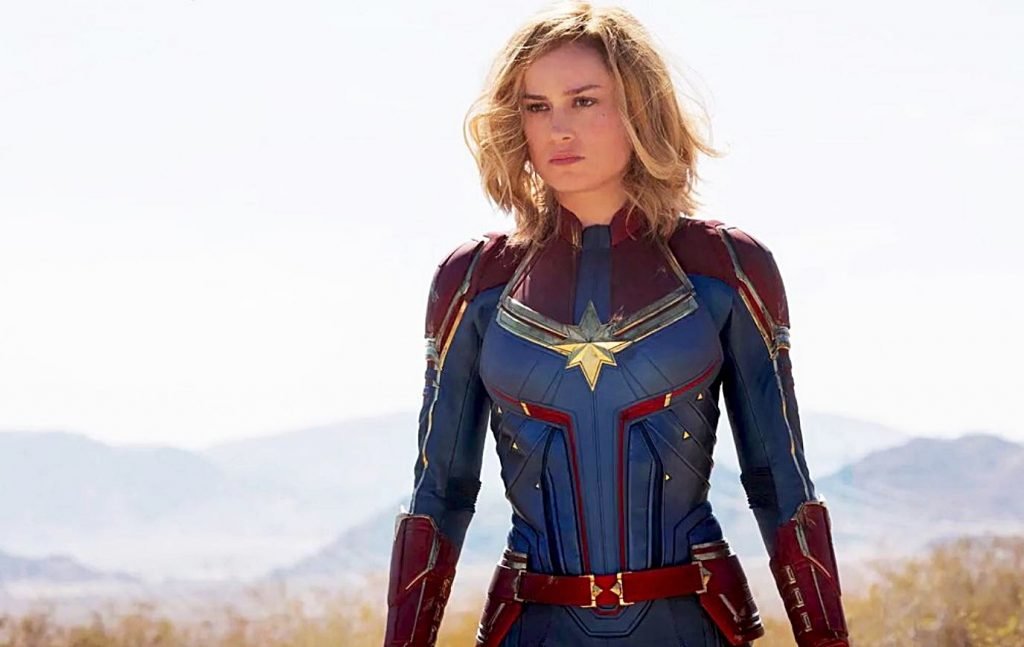
The days when the mere presence of a female action lead was a progressive touchstone mostly ended with Ellen Ripley. Gender discrimination on and off the silver screen certainly didn’t end then, and a wealth of action genre pictures have contemplated gender oppression and inequality in thoughtful and rousing ways. We’ll be unpacking the themes in “Mad Max: Fury Road” for decades (heck, it feels like we’re living through them today), and “Wonder Woman” broke a glass ceiling in superhero films with a hero proud in her femininity. Indeed, both films present feminism as mankind’s last best hope.
“Captain Marvel” begins and ends with a man mansplaining to a powerful woman that she’ll never realize her full potential until she learns to control her emotions. But between these promising bookends is a languid, by-the-numbers slog that isn’t just a subpar superhero movie. It also falls far short of the elevated feminism promised in months of run-up to the film’s release.
Hailing from the planet Hala in the Kree Empire, Vers (Brie Larson) is a member of an elite military Starforce, tasked mainly with combating the Skrulls, a race of shapeshifters who are at war with the Kree. Vers is obviously human, yet she possesses superhuman kinetic abilities, chiefly shooting ray beams from her hands. In an effort to circumvent the typical superhero origin story, directors Anna Boden and Ryan Fleck make Vers oblivious to her own life before she possessed powers. Still, despite knowing she’s been with the Kree for only six years, she’s uninterested in how she got there, how the Kree indoctrinated her, and how she came about her pyromancy powers.
While on a rescue mission to extract a Kree spy, Vers is taken captive and mind-probed by Skrull leader General Talos (Ben Mendelsohn). This unlocks a series of latent images suggesting Vers enjoyed an alternate life on Earth that she doesn’t remember. Talos interprets these images as clues to the location of a MacGuffin that will somehow win them the war.
As Talos and Skrull arrive to Earth, known to them as Planet C-53, Vers escapes and crashes in America circa 1995. The nostalgia is relentless: Vers lands in a Blockbuster Video, commandeers communication equipment from a Radio Shack, and the needle-drops span TLC, Garbage, Nirvana and No Doubt. Nick Fury (Samuel L. Jackson) is called Nicholas Fury, and while both he and Phil Coulson (Clark Gregg) are agents of S.H.I.E.L.D., they’re glorified cops and not yet Men in Black. They’re also digitally de-aged, a visual distraction throughout the film.
While helping Fury stop the Skrull, Vers embarks on a sojourn of self-discovery. Learning that her true name is Carol Danvers, she also hopes to identify the people strolling through her synapses. Along the way, there are some shots at the Trump-era treatment of immigrants and a Vietnam-era discovery that the side of a war you’ve been fighting all this time may not be the side of righteousness. But beyond deciphering a few whos and hows, Vers’s character arc essentially goes from being the most powerful person on the planet to becoming the most powerful person in the universe. Devoid of the mythological underpinning of Superman, the problem with Captain Marvel is that her near-omnipotent abilities rob her story of any narrative tension.
So much of “Captain Marvel” feels flimsy, from the muddled visual pallette to the film’s plotting. Vers’s Kree minders, mentor Yon-Rogg (Jude Law) and ruler Supreme Intelligence (Annette Bening), constantly remind her that they can remove her powers anytime they want, but their tether ultimately extends no further than an easily removable gizmo attached to her neck. A key expositional scene rests on the revelations found in a ridiculously omniscient airplane black box recording. The film is more diligent filling in the blanks of the Marvel Cinematic Universe than its hero’s origin story, but if you’ve been waiting to learn how Fury got his eyepatch, then you’re bound to be disappointed with this answer, too. And just when you thought you were done with the Tesseract, the boring blue cube is back.
Larson eagerly strikes a heroic pose, but her proud portrayal—partly enabled by Larson’s walled-off manner—begins and ends with mugging for the camera and tossing one-liners at the men in her way. There’s zero emotional realization, no depth beyond a generalized curiosity of how we’ll reach an inevitable finale. Indeed, Captain Marvel’s appearance during an end credits scene that previews “Avengers: Endgame,” another exercise in prolonged inevitability, seems appropriate.
Along the way, Boden and Fleck poke a little fun at exemplars of pop cultural masculinity: a Fonz lunchbox here, some “Top Gun” references there. A startled Vers blasts a cardboard display for the movie “True Lies,” conspicuously removing Arnold Schwarzenegger’s head while leaving Jamie Lee Curtis intact. But a few tee-hees aren’t declarations of justice and inclusion. Inside the MCU, “Captain Marvel” doesn’t approach the transcendent and revolutionary example of “Black Panther.” And when contrasted against “Wonder Woman,” “Captain Marvel” is singular in one respect: it’s the first Marvel movie playing catch-up to DC. Based on the finished product, it still is.
Captain Marvel
Grade: C +
Directors: Anna Boden and Ryan Fleck
Starring: Brie Larson, Samuel L. Jackson, Ben Mendelsohn, Annette Bening, Clark Gregg, and Jude Law
MPAA Rating: PG-13
Running Time: 2 hr. 4 min.